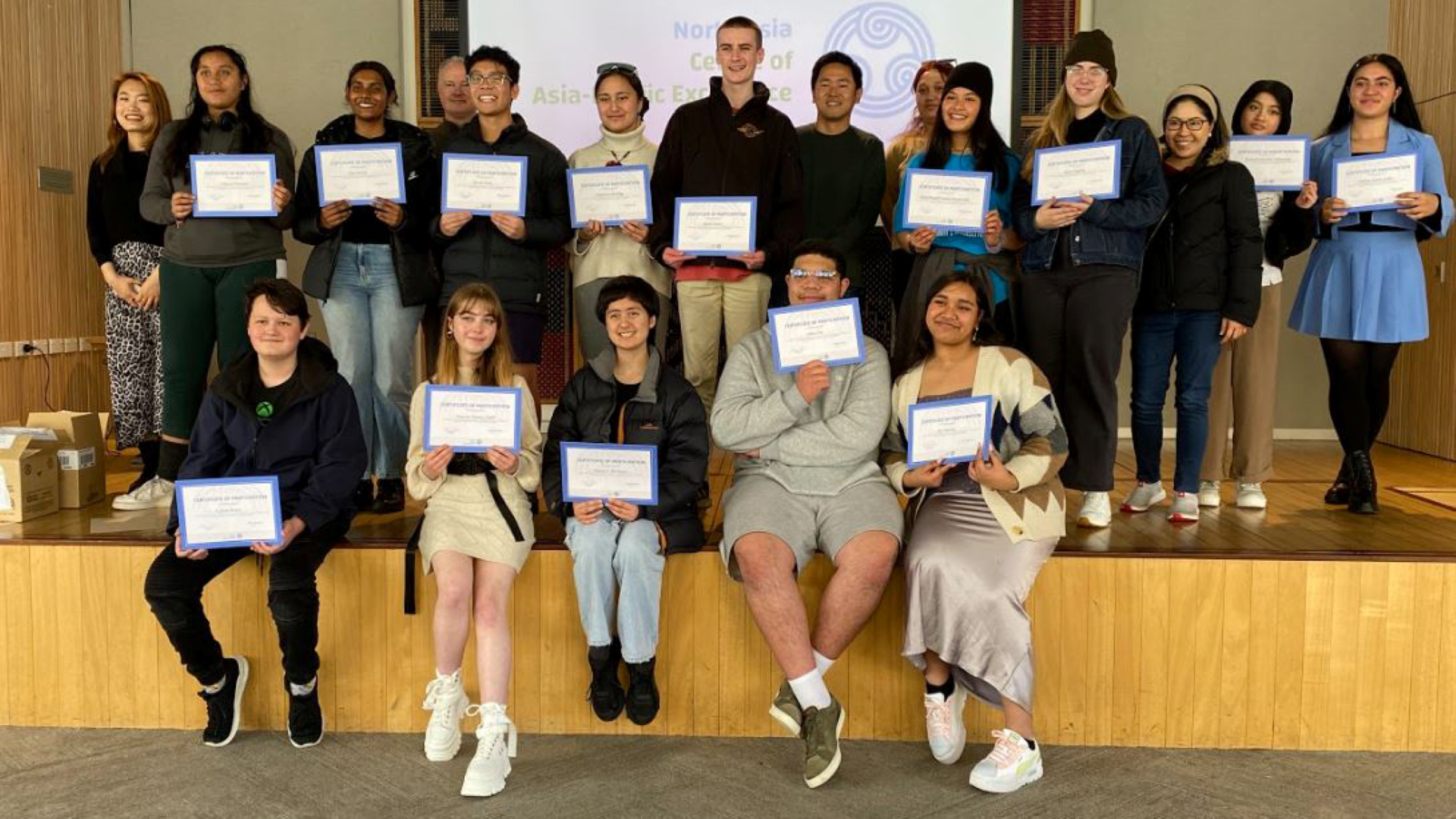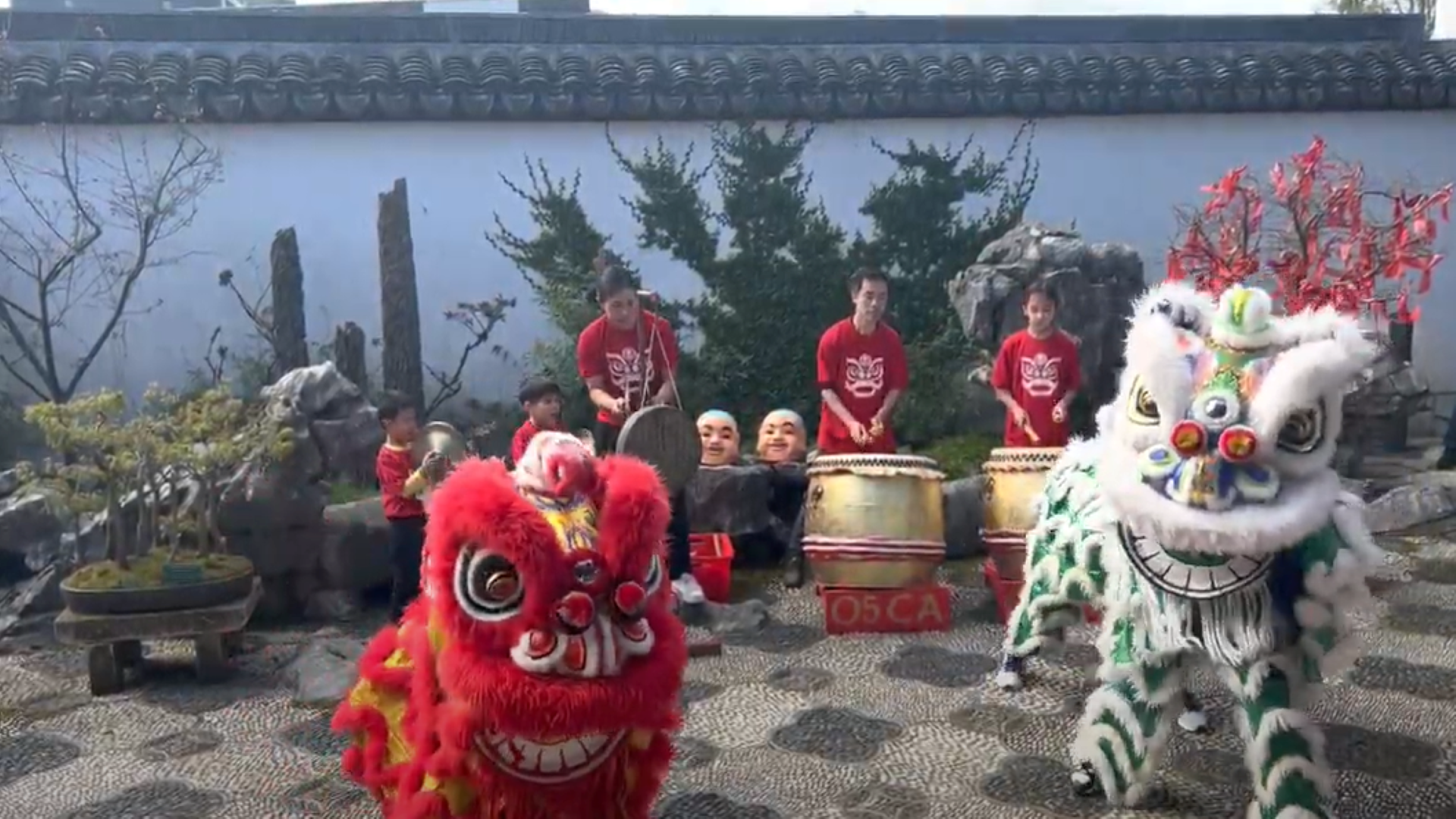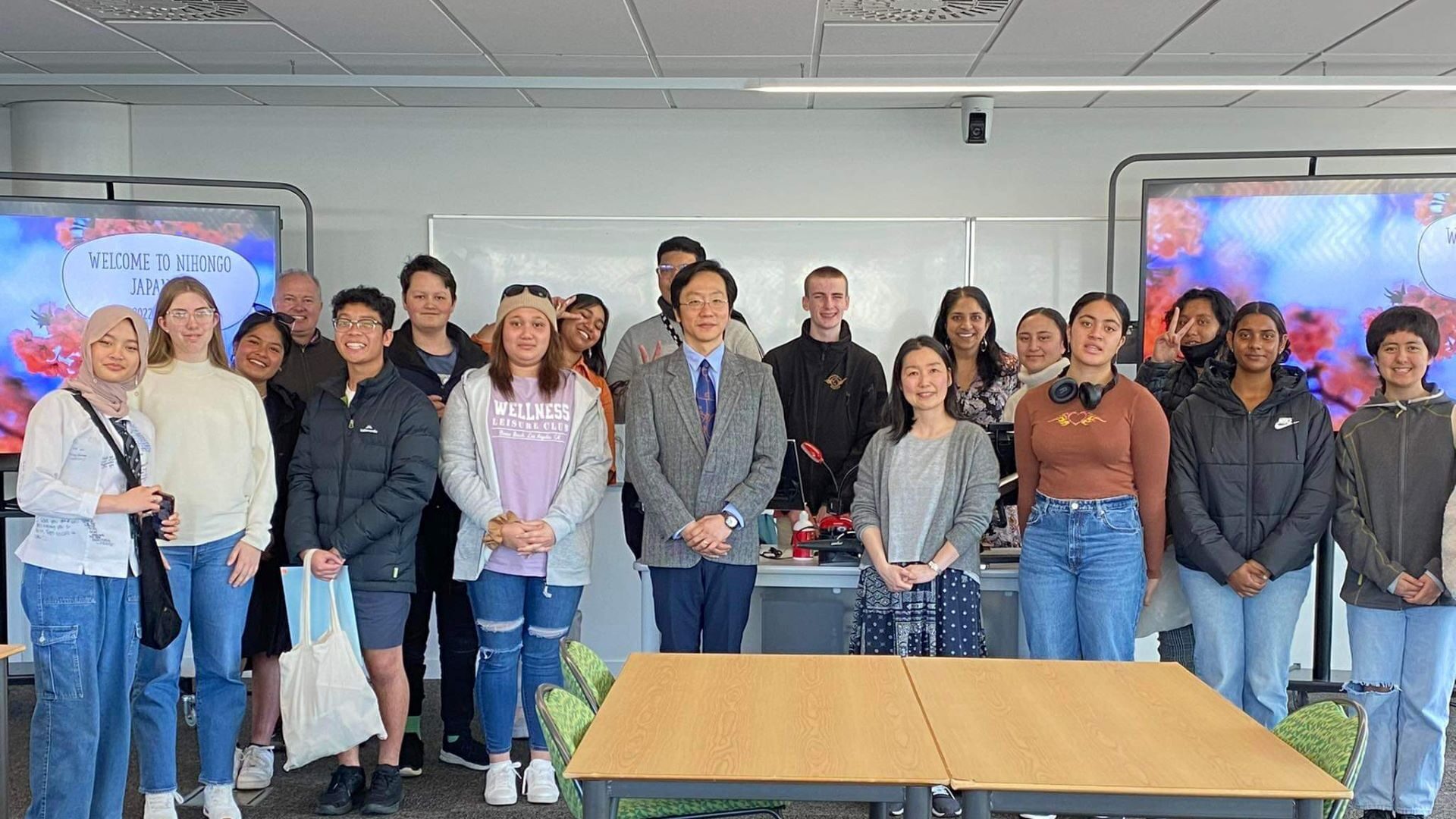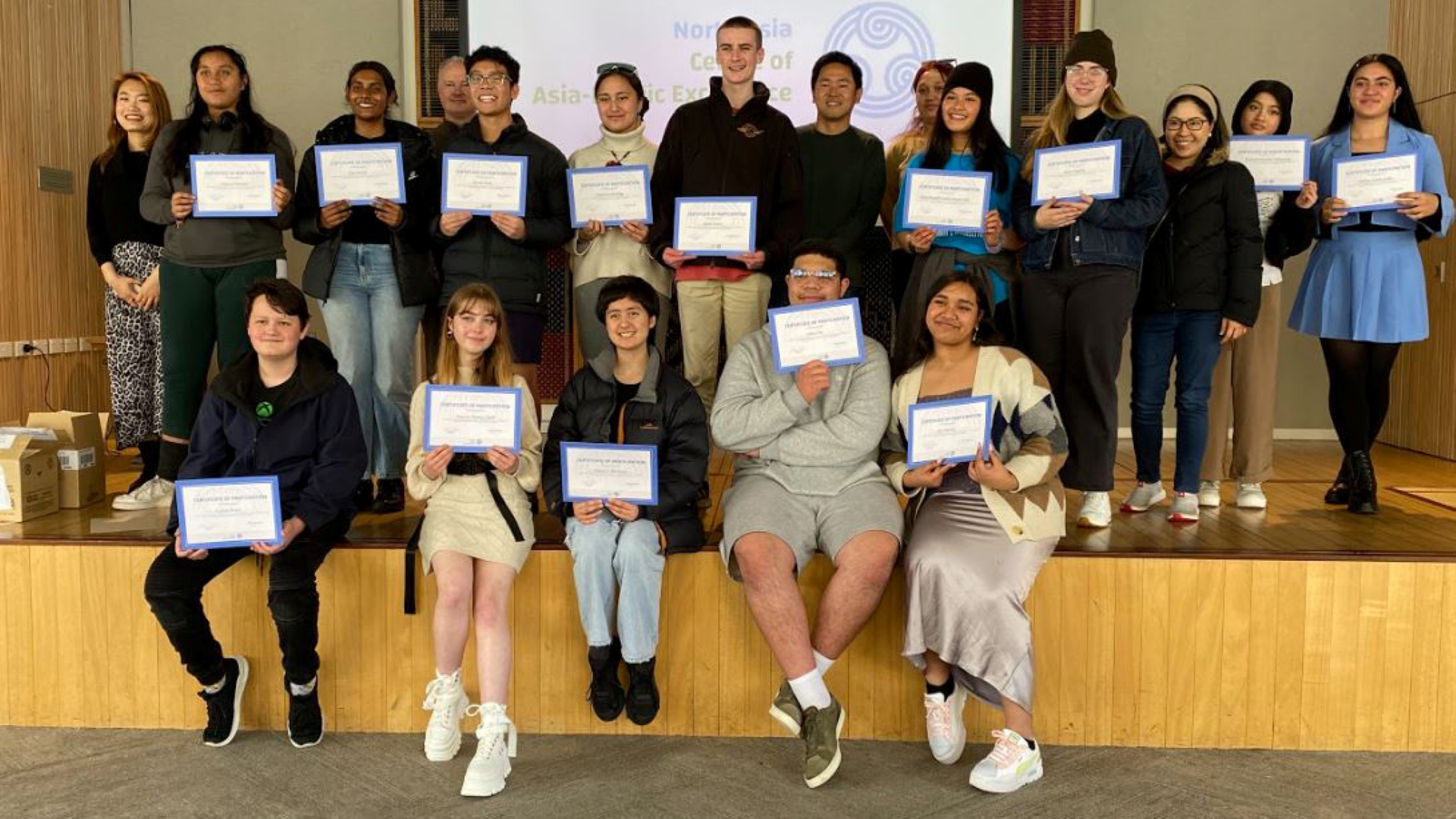North Asia CAPE Study Tour

21 October 2022
North Asia CAPE held a domestic North Asia study tour mid September over four nights and five days involving fifteen students from twelve high schools across New Zealand currently studying Chinese, Japanese, and Korean languages in years 11-13.
The study tour was designed to deepen high school students’ cultural awareness, and cross-cultural competency by exposing them to the languages, cultures, and history of North Asia in the New Zealand context.
Delivered in three cities – Dunedin, Wellington, and Auckland, each city in turn was the focus of one country, starting with China in Dunedin followed by Japan in Wellington, and ending with South Korea in Auckland. Students partook in immersive language lessons, interactive cultural activities, and learned about the historical connections between New Zealand and the three countries.
Students were tasked with completing homework each evening in preparation for the next day’s activities. Included were daily reflections online and preparing for a group presentation at the end of the tour. From the beginning students quickly formed connections with each other as they all shared a common interest in North Asia languages and cultures.
“The carefully selected groups made the tour even more immersive as I got to share these experiences with people as passionate as I am about the North-Asia cultures”. (Sophia Kaifa, Year 11 student, Epsom Girls Grammar)
Language lessons held in the target language each day placed students out of their comfort zones but in doing so helped them figure out how each language worked. Later, explanations about the origins of the languages and how they evolved over time enabled students to make connections between North Asia languages even if they were only familiar with one language.
“It was fascinating to see how both Japanese and Korean had language and script roots with Chinese, like how the counting system sounds very similar to each other. By learning some of the other languages, I could see how it can help in gaining a deeper overall understanding of the concepts behind the Korean language as many Korean words come from Chinese characters that each have individual meanings.” (Eden English, Year 13, Napier Girls High School)
By participating in tailored activities both inside and outside the classroom, students learned first-hand the different ways languages and cultures are interrelated. In Dunedin a lion dance performance and workshop provided insights into the Chinese culture. For Wellington, students ordered meals at an authentic Japanese restaurant using key phrases. In Auckland students tried their hand at calligraphy, re-enforcing the hangul they learned.
“Understanding Japanese etiquette in its many forms and practicing some in a real-life situation taught us about the mannerisms of Japan that we would need to consider in a Japanese environment in the smallest of aspects, helping me further understand why learning about culture is so important when studying a language from a culturally different place”. (Hannah Iskandar-Zulkarnain, Year 11, Lincoln High School)
Presentations throughout the tour focusing on the relationships between New Zealand and North Asia gave students a multifaceted overview of the strong ties we have as well as their place in the world as global citizens.
“My understanding of North Asia languages and cultures have been enhanced over the past few days while I was on this study tour, and I personally felt more connected to not only Japan’s language and culture but Korea and China’s as well”. (Riya Prasad, Year 13, Papatoetoe High School)
Hema Bhana, Japanese teacher, Papatoetoe High School had this to say about the tour:
“It was such a valuable experience for our students – to meet peers with similar interests from all over the country, to share their own backgrounds and knowledge and to reignite their passion for learning languages. Seeing these young leaders so motivated, open-minded and intelligent reassures me that our future is in great hands. The itinerary was packed with outstanding workshops, which were educational for both staff and students alike. North Asia Cape should be commended on their organisation.”
Special thanks go to the teachers who assisted North Asia CAPE on the tour – Lanxin Ma, Chinese teacher, Sacred Heart College; Hema Bhana, Japanese teacher, Papatoetoe High School; Elizabeth Henry, teacher, Sylvia Park School.
We look forward to engaging with the students as they continue their journey studying North Asia languages and cultures in the years ahead.













